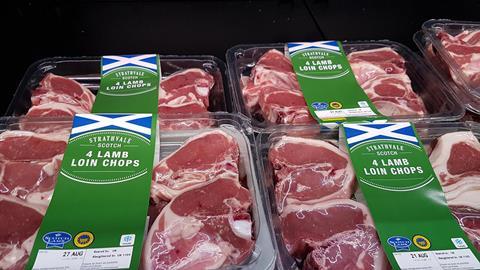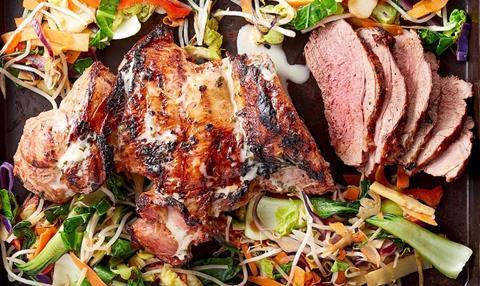The latest grocery market share figures from Kantar show that grocery price inflation has dropped slightly to 17.3% for the four weeks to 16th April 2023, but this is still the tenth month in a row it’s been in double-digits.

The data also revealed that Aldi surpassed a 10% market share for the first time, whilst its fellow discounter, Lidl, was the fastest growing retailer.
As consumers continue to find ways to manage their household budgets, own-label sales were up by 13.5%, with the very cheapest value own-label lines soaring by even more – up 46% year on year.
Fraser McKevitt, head of retail and consumer insight at Kantar, commented: “The latest drop in grocery price inflation will be welcome news for shoppers but it’s too early to call the top. We’ve been here before when the rate fell at the end of 2022, only for it to rise again over the first quarter of this year. We think grocery inflation will come down soon, but that’s because we’ll start to measure it against the high rates seen last year. It’s important to remember, of course, that falling grocery inflation doesn’t mean lower prices, it just means prices aren’t increasing as quickly.”
After ten months of double-digit price growth, the British public is continuing to turn to own label lines to help manage spending. Fraser McKevitt explained: “Own label lines, which are often cheaper, are still growing at 13.5% this period suggesting shoppers are finding better value for money on these shelves. The very cheapest value own label lines are doing even better, with sales soaring by 46% versus a year ago. These products now find their way into nearly one in five baskets. Branded sales are going up but more slowly at 4.4%.”
Easter sales
According to Kantar consumers didn't hold back on their favourites for Easter and 3.4 million households picked up a lamb joint for the traditional seasonal roast during the four week period to 16th April.

Eleanor O’Brien, managing director of National Craft Butchers, told Meat Management: "On average our butchers reported trade over the period ranging from on level to 6% up on last. Reports showed that pre-orders were a bit slower than previous years, but trade in the week leading up to Easter and across that weekend was swift. This resulted in lots of empty fridges and happy but tired teams.
David Gigli, NCB president elect said: “We had a fabulous Easter, really good footfall and really good spending. Saturday was our top day, which was full on from start to finish. It was much better than we thought it might be.”
Stephen Hill of Perrys of Eccleshall said that there was: “A bigger increase in family gatherings and large joint sales, in some ways it felt like a second Christmas in the shop.”
Outlook
Shoppers are likely to be looking ahead to the three bank holidays in May, including for the Coronation, which could impact grocery sales. Fraser McKevitt explained: “We’ve recorded bumps in supermarket sales for previous major royal events. During the week of the Platinum Jubilee last year they were £87 million higher than the average in 2022. We’ll be keeping a close eye on the data in the weeks to come to see if we get the same effect this time around, including how many of us indulge in a Coronation Quiche. Only half of British households bought a quiche over the past year so it might not be for everyone.”
This story was originally published on a previous version of the Meat Management website and so there may be some missing images and formatting issues.












